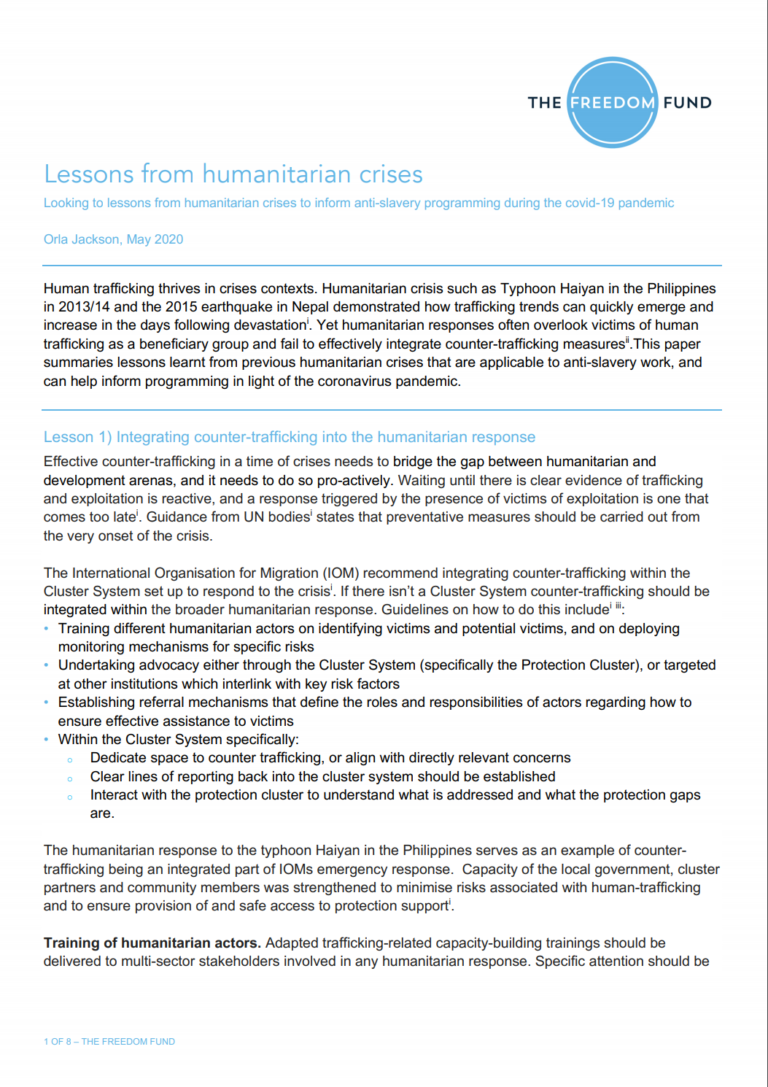A Fair Hiring Framework for Responsible Business
GuidanceOur Help Wanted Primer articulates the risk to multinational companies of forced labour and resulting debt-bondage caused by labour recruitment, and identifies the places within a company’s sourcing practices where recruiters present a reputational...Read More

